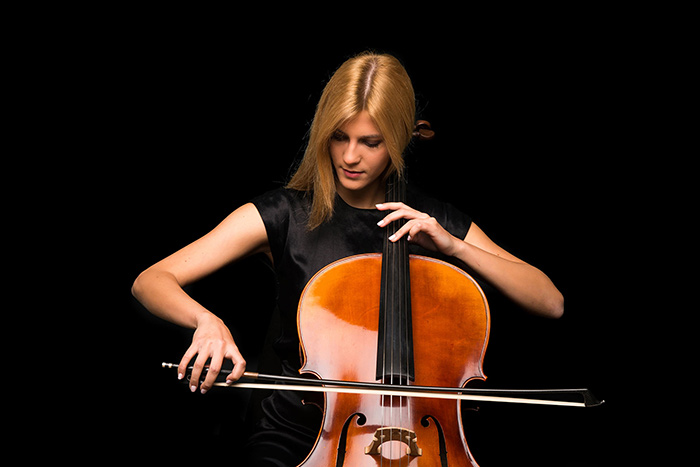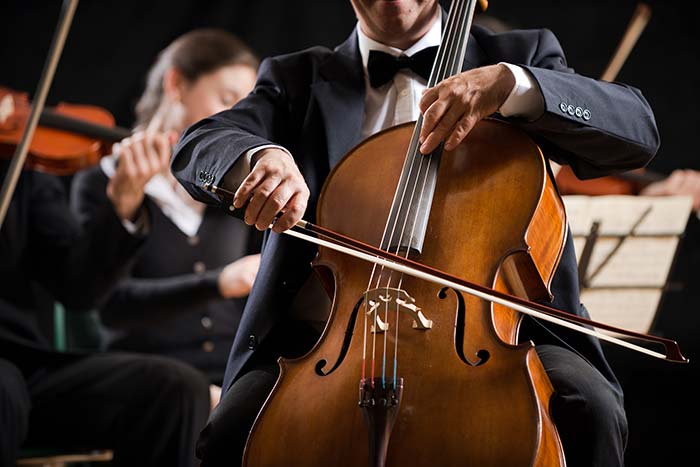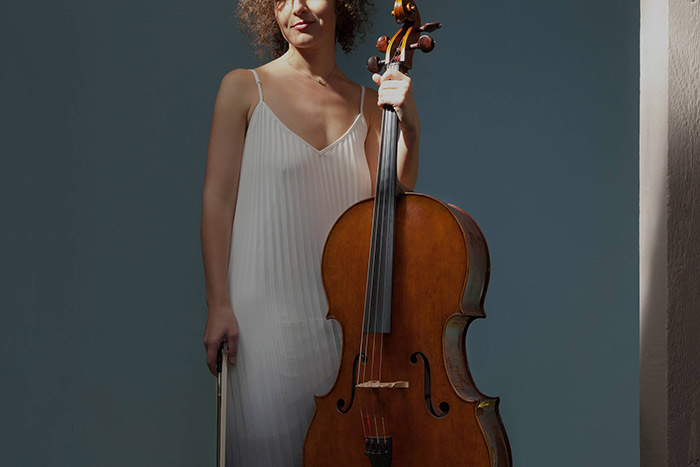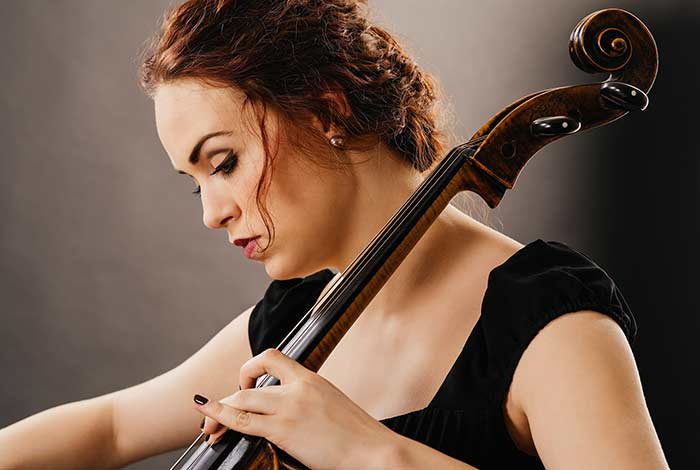The Violoncello is widely regarded as one of the most beautiful instruments you can play. From Bach and Brahms to Bartok and Bridge, composers have utilised its rich tone and versatility to create some of the most touching and memorable music ever created.
The immense sonic beauty of the cello draws new people around the world to learn it every year, from a wide variety of musical (and non-musical) backgrounds. Nearly every new player, however, runs into the same reality: that the Cello is one of the hardest instruments to learn, and requires commitment and dedication to master.
There are numerous reasons for this, all of which my students are working to overcome right now.
Precision, Musical Ear, Tone and Technique
First of all, unlike the Piano or the Guitar, the Cello is not a ready-made precision instrument. Each time you place a finger on a string, you need to place it in exactly the right position to achieve the precise note that you want.
To do this consistently, you need to develop a good musical ear to detect the difference between a good note and a badly tuned one. On the Piano and Guitar this is already done for you, and your only task is to get the right finger on the right key or fret as smoothly as possible.
Then there’s the question of tone. The Cello requires you to use your bow in very particular ways to make a good, even tone with the instrument. This takes time and dedication just to stop it squeaking!
The most challenging element of this I have found is getting someone to relax their shoulders and wrists when the natural reaction is to tense up when the tone is poor. The hours required to overcome these hurdles, however, are a small trade for what you are rewarded with the ability to play some of the most beautiful music ever written.
Physical Demands on Adult Learners
A common question I am posed by students is whether they should have learned to play Cello earlier and whether 40 is too late to start learning. There are undoubtedly differences in the learning process between adults and children.
However, in my opinion, these do not constitute a more difficult process overall, but one in which certain elements require different approaches and more time commitment. The main element of learning Cello that a younger student benefits from is the physical aspect. The Cello requires you to use your muscles, especially in your hands and fingers, in ways they are rarely needed elsewhere in life.
Children possess a much cleaner slate when it comes to this, and so getting them to use the correct technique if taught diligently, can be quite a quick process. Once they learn it properly, they do not have to re-learn any of it later on. For adults, this is often a sticking point and one which they are required to tackle from day one. A lifetime of not using your weaker fingers for anything makes the process of strengthening and controlling them more difficult to overcome.
Failure to adapt your fingers and arms to the required techniques prevents even the most dedicated Cellist from reaching a high level. Whilst this presents more of a hurdle for adults, it is by no means impossible for anyone, and in plenty of cases, it has not lengthened the learning period. This early hurdle that adults face subsequently rewards them once the technique becomes second nature.
Another element of learning the Cello, which becomes mandatory past a certain standard of playing, involves certain amounts of musical maturity. When I was a child learning to play the Cello, appreciating the music didn’t come easily to me. In fact, my teacher used to say my playing sounded like an omelette hitting the floor! The fact is the Cello doesn’t just make nice sounds because you use good technique or have nimble fingers.
The Cello as Emotional Release
The Cello is an instrument that requires, more than almost any other instrument, the player to put emotion and soul into their performance. This aspect of musicianship requires maturity, as well as a keen appreciation for the context of the music, and an ability to use personal feelings and experiences to inform musical expression. This is where I have found adults have a clear head start when learning the Cello.
Whilst many adults are not immediately keen on dropping their guard enough to perform expressively, I have seen many times that the first instance in which they allow themselves these expressions, is the beginning of a very fruitful journey with the instrument. In the busy lives that many of us live, music is so often an instant respite from daily problems and stress.
The Cello, as many of my students have proven recently, has formed an almost crucial part of their life that allows them to let off steam. Because of this, I believe the stages of learning beyond the fundamental motor skills and technique are an area in which adults have a greater affinity with learning the Cello.
Learning the Cello as an Adult
The question of how hard it is for an adult to learn the Cello can often be falsely taken in the same light as if asking about learning a sport later than professionals do. It’s true, starting to play football at 16 years old is not likely to land you a professional career. However, nobody should look at learning the Cello or any instrument in this way.
People should not begin playing music with the idea of becoming a professional. Playing the cello to a standard necessary to perform as an amateur or to play a repertoire of your own choice does not require prodigious talent or a hard regime from an early age. For adults and children alike, it is a very achievable goal, and in the case of the Cello, it is a thoroughly rewarding one.
To anyone who is finding the early stages of their journey with the Cello difficult, I say try to be better today than you were yesterday, and the goal will always be in sight!
Related article: Can I start learning the cello at any age?












